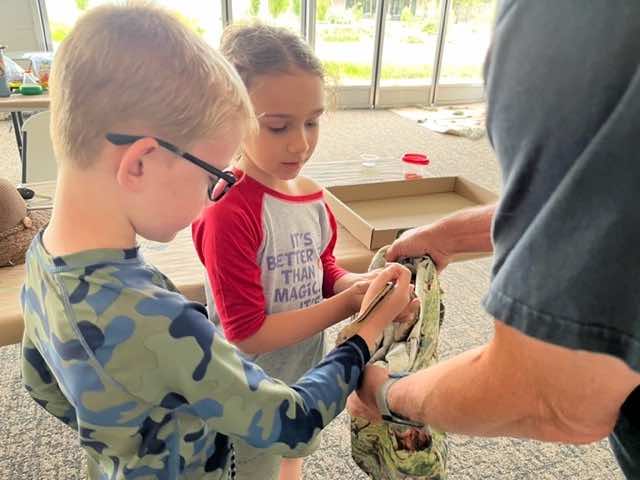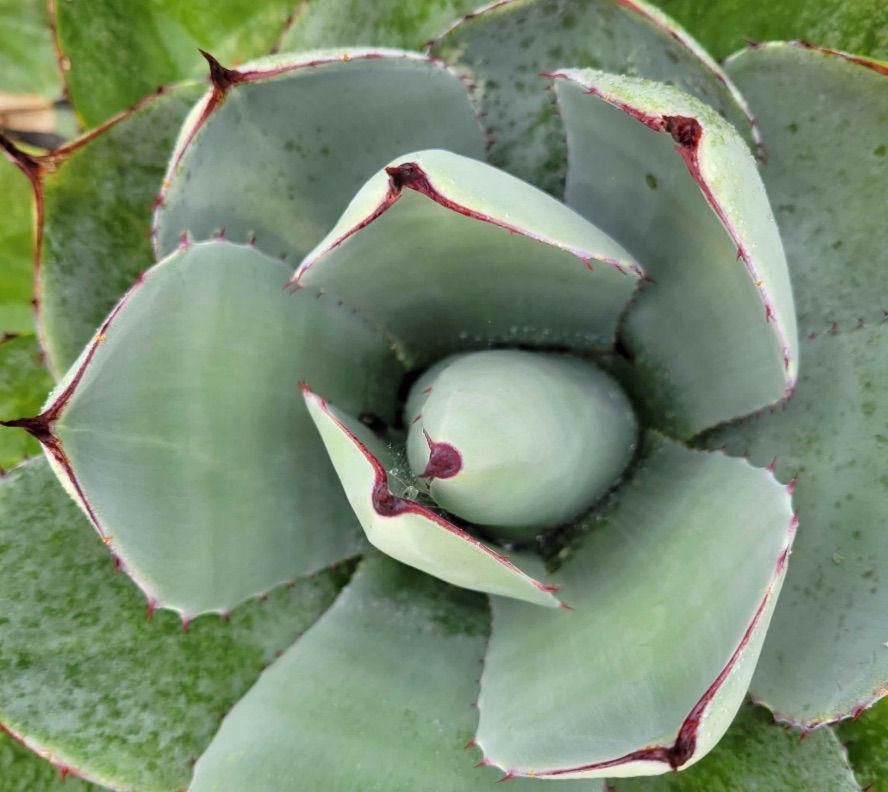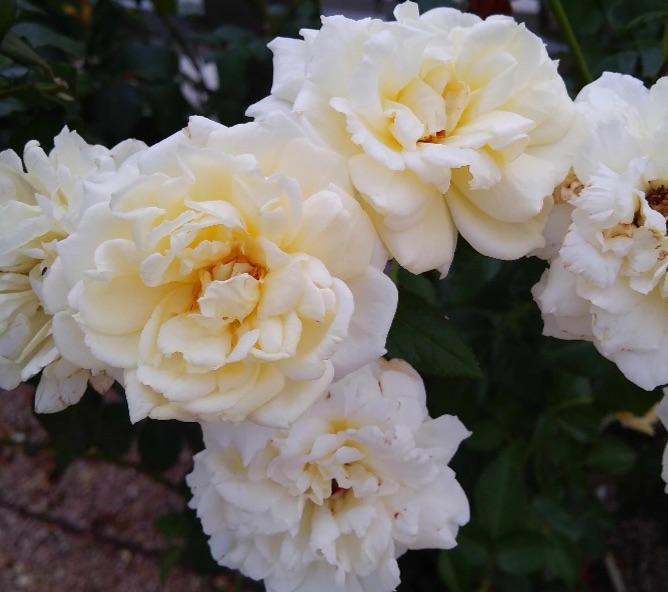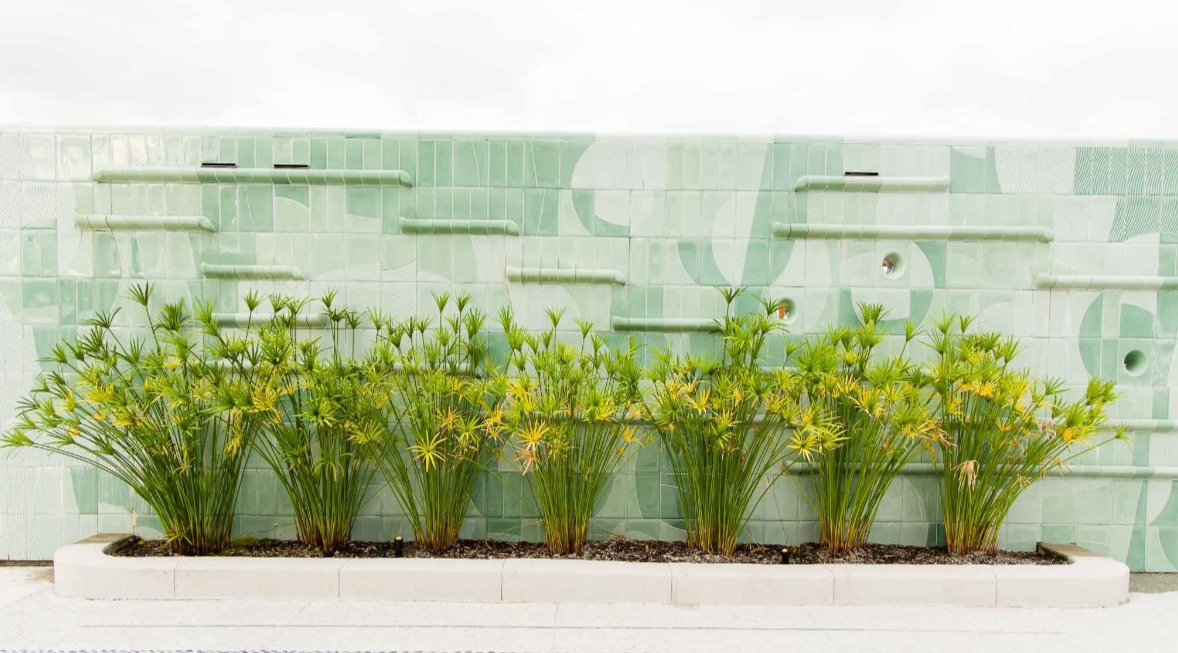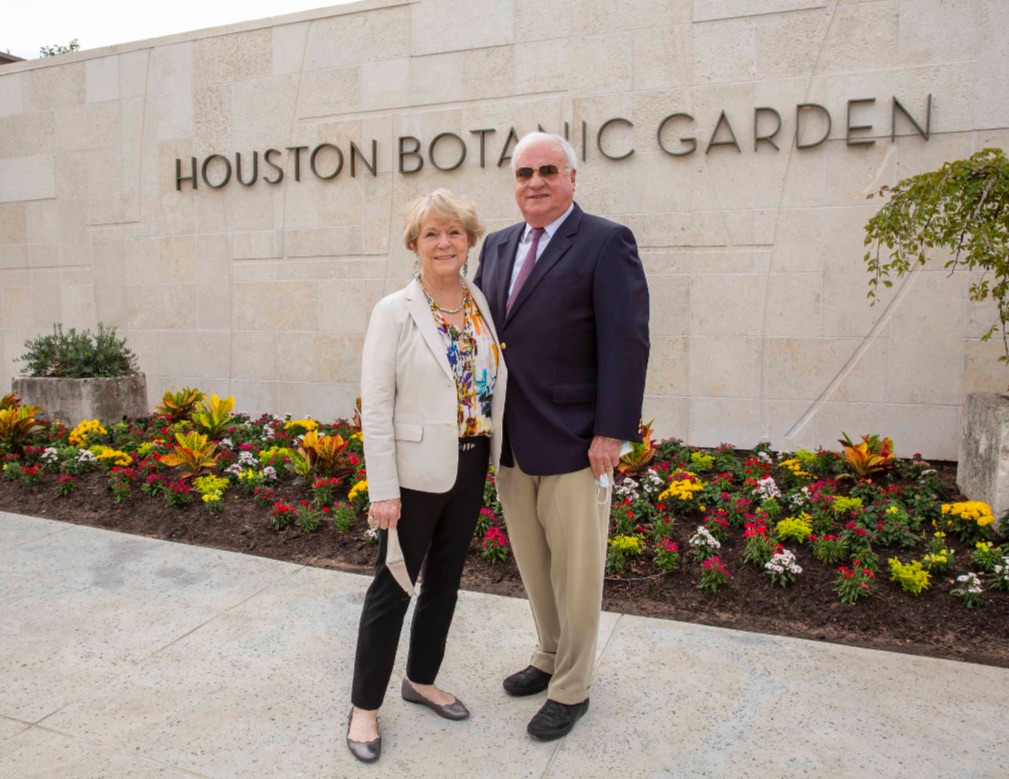
July 6, 2022
New Anti-Heat Technology: Plants!
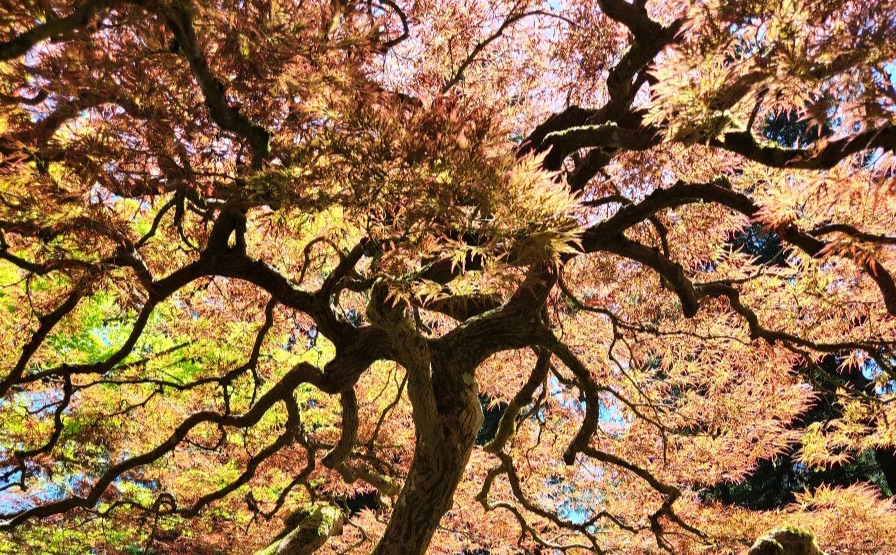
Taken at the Portland Japanese Garden looking up through the canopy of a Japanese maple (Acer palmatum).
What does summer mean to you? Longer days, kids’ camp, less traffic, vacation getaways, and perhaps pool time to stave off the heat?
Summer means all that, and one of my favorite events of the year—the American Public Gardens Association annual meeting. Leaders from across the Americas gathered in Portland, Oregon, in June to share learnings about the impact of public gardens, collaborate on conservation initiatives, and work together to improve biodiversity and plant ecologies.
I also visited some stunning landscapes of the Pacific Northwest. When I walk through green spaces, whether here or far away, my impulse is to go low and to go high. I get down low to get a closer look at the patterns of the petals and the wisps of grass. Perhaps my favorite perspective is looking up through the tree canopy to the sky above. I love how sunlight shining through layers of leaves creates an intricate pattern with dark branches winding through. While gazing up, I often lay my hand on the tree’s trunk and consider how long it has been shading people and cleaning the air. Just as we take care of trees and plants, they take care of us.
During our hot summers, the cooling effect of trees and urban forests is profound. Cities like ours become urban heat islands where heat is trapped in asphalt, concrete, steel, and brick. Trees and plants, through shading and evapotranspiration, can help reduce temperatures by up to 9 degrees! Local researchers have identified which trees have the greatest impact on improving the air, mitigating floods, and reducing the heat island, with live oaks and sycamores topping the list. Right now, with temperatures what they are, all those trees sound pretty important.
You can get out to the Garden and other green spaces this summer to feel the difference plants make on the heat. The Garden is open early for members each day at 8:00 a.m., and stays open late until 8:00 p.m. on Fridays so visitors can take advantage of more pleasant early evening temperatures. See below for fun things going on at the Garden, and tips on how to care for your garden during the hot summer to ensure that it also takes care of you! Life Grows Here.
Claudia Gee Vassar, President & General Counsel
The Taste My Flavias food truck has been a favorite since it first began serving Garden visitors in 2020. This summer, the truck is serving up iced beverages made with fresh fruits and herbs on Saturdays and Sundays from 10:00 a.m. to 4:00 p.m. near the Culinary Garden. Drop by to try each refreshing combination and make sure to say hello to owner Flavia Nelson!
Ecosystem Adventure: From July 18-22, campers will explore natural phenomena, from flowers and plants to animals, too. Register Today
Arbor-mania: Between July 25-29, campers will learn all about trees. Sign Up
More Upcoming Sessions
Flower Power: August 1-5. Get Registered
Farms & Fields: August 8-12. Reserve a Spot
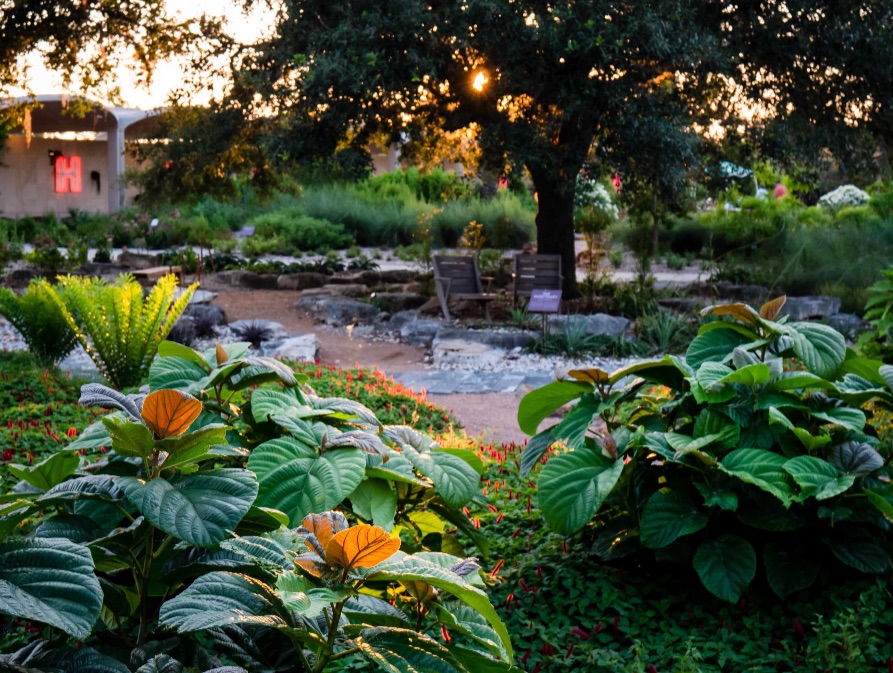
The sun sets behind the Alcoves, casting an orange glow on the Garden.
Start your weekend off right! Extended Friday hours (until 8:00 p.m.) mean more time to explore all that the Garden has to offer. Mark your calendar for exciting programming including:
July 22: Salsa Dancing in the Pine Grove
July 29: Sip, Sup & Stroll with Equal Parts Brewing
Are Tequila & Mezcal the same thing?
Explore the etymology, origins, and production of Mezcal! This bilingual class on July 8 will feature pours of artisanal Mezcal from San Luis Potosí, Mexico. Ages 21+
Meditation with Garden Herbs
There’s no better time to stop and smell the roses than July 15. Join us as we demonstrate how this beautiful flower can also have lots of benefits to your everyday wellness.
Explore our Events Calendar for more upcoming opportunities to grow your gardening knowledge.
Making Memories at the Garden
Jade Water Walls Wow Garden Visitors
The Emily Clay Water Walls are one of the most engaging design elements at the Garden, stimulating the senses of sight and sound, and leaving visitors feeling as relaxed as the water trickling softly through the feature. Conveniently located within our Culinary Garden, you might even smell a hint of fresh herbs while you enjoy the Water Walls’ musical movement.
Recently named after Emily Clay following her generous $1M gift—the largest single gift given since conclusion of the Garden’s initial funding campaign—the walls are a timeless backdrop for group photos, as well as a lovely place to sit and reflect.
The bespoke walls were designed by West 8, our award-winning international landscape designer, and are the ideal location for hosting a variety of social events and educational programs. West 8 meticulously assessed color combinations, created 3-D printed models, and debated color samples to perfect the installation of 3,591 hand-painted jade ceramic tiles.
Be sure to stop by the Emily Clay Water Walls on your next visit—and tag us in any photos you post on social media!
Get Ready for Lightscape!

The internationally acclaimed Lightscape is returning to the Houston Botanic Garden this holiday season from Nov. 18 to Jan. 1! Magical dynamic light displays will be set along an illuminated pathway through the Garden. Visitor favorites from the inaugural year, including the towering Winter Cathedral tunnel, will be joined by lots of new features, including a field of glowing Texas bluebonnets!
Tickets pre-sale for Garden members begins July 13;
ticket sales announced to general public on July 20.
Summertime can be tough on plants, especially with drought conditions looming. Thankfully, plants have several ingenious methods for surviving less-than-hospitable conditions.
Some plants reduce water loss through their leaves by regulating the size of the stomata (openings on the leaf surface through which plants breathe). A smaller opening equals less water loss through transpiration (the term for how plants breathe).
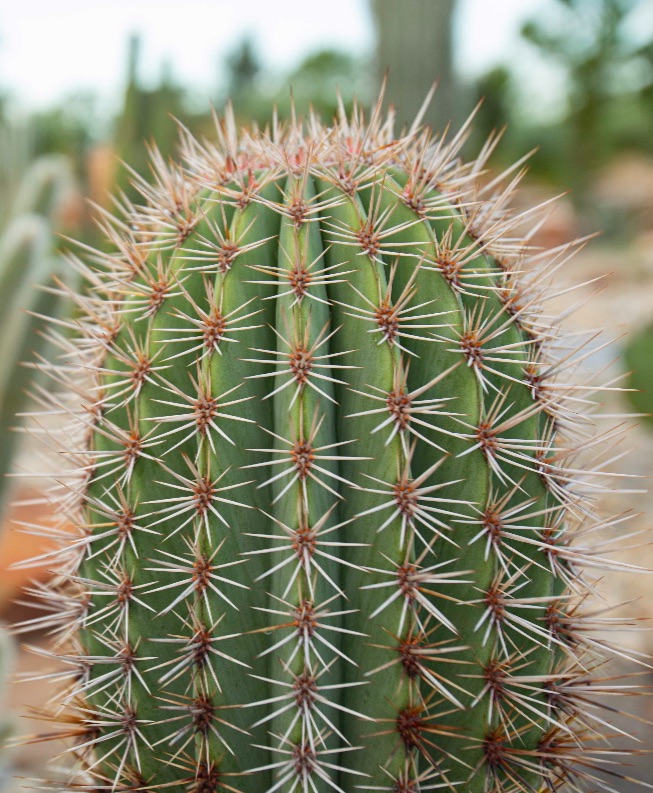
The thorns on cacti are actually a modified leaf. The reduced surface area helps to reduce water loss in extreme climates, such as the desert.
Many plants, cacti included, have a silvery or whitish surface to their leaves and stems, which helps them reflect light rather than absorb it, thus keeping the plant cooler.
As noted in the Horticulture Help section below, roots also play a crucial role in helping plants survive the summer. Drought induces plants’ roots to penetrate deeper into the soil as they seek life-sustaining moisture.
Soils with constant moisture in the upper levels impede a plant’s ability to expand its root system, primarily because there is no need. The plant will not waste energy expanding its roots if it does not need to. This is why we advise watering deeply and infrequently, as it forces the plant to seek moisture.
Lastly, many plants, such as bananas (Musa), may fold their leaves slightly during the heat of the day. This is a strategy used to reduce the amount of leaf surface exposed to the sun. In the shade of evening, the leaf returns to normal. You may also see this phenomenon in potted plants that are placed in the sun since potted plants tend to undergo a great deal of stress due to their limited root capacity and inability to reach additional moisture beyond what their caregiver provides.
What’s summer without birthday parties? We are offering discounted private rentals in July and August so more families can enjoy time outdoors, have a fun, safe place to host friends and family, and be able to cool off in the Family Discovery Garden’s water play area.
Hear what Sherry had to say after hosting a birthday celebration at the Garden:
“The Petite Pavilion is a great place to host a child’s birthday party. It’s clean and has wide open spaces for the kids to run and have fun. There was a plant scavenger hunt, and everyone had a wonderful time learning about and looking for the various plants and marking them off their list. I highly recommend it—we will be hosting another birthday party there again.”
Donors Lela and Robin Gibbs have long supported the Garden and even have a special area dedicated to Lela near the Family Discovery Garden. In this recent interview, they talked with us about what makes the Garden such a special place for families in particular, and why they view it as a wondrous escape from the noise and stress of the city, and a great place to enjoy the benefits of spending time in nature.
You can make a donation to our annual fund at any time by clicking here or texting give2garden to 71777.
With much of Texas in the grips of the worst drought since 2011, how can I conserve water but still maintain a lush and healthy landscape?
While it may seem counterintuitive, watering less is actually beneficial. Plants rely on their roots to transport moisture throughout the plant and up into the canopy. This serves to keep cells hydrated and functioning properly, while also cooling the plant through transpiration.
Frequent, shallow irrigation is actually detrimental to the development of a strong, healthy root system. Irrigating less frequently, and more deeply, at each watering encourages the development of a deep root system that is better equipped to seek out moisture during times of drought.
Plants that are watered too often are the first to stress out in drier spells, because they have shallower, poorly developed root systems.
Another sustainable method to aid your plants during times of drought is the application of a 2-3” layer of organic mulch, such as composted leaves, aged mulch (hardwood or pine), or pine needles. Mulch helps in a number of ways: cooling the root zone, retaining moisture, and suppressing the growth of weeds that, in turn, compete with the plant for moisture and nutrients.
Meet Mary Vargo, the Garden’s Spotlight Volunteer at this spring’s Volunteer Houston event. Mary has been involved with the Garden since long before we began to build.
She’s assisted in almost every aspect of our operations, including events, presentations, and finance! We sat down with Mary to learn a little more about what the Garden means to her and why she enjoys volunteering.
To get involved, contact us at volunteers@hbg.org or call 713-715-9675 ext. 152.
The Annual Luncheon is Getting Closer

Susanne M. & Melbern G. Glasscock will be honored on Thursday, October 13, 2022, during our 2022 Annual Luncheon at River Oaks Country Club! Joining them will be speaker Jay Maddock, PhD, FAAHB, a professor in the Department of Environmental and Occupational Health at Texas A&M University.
Meet our Newest Board Members
We are thrilled to introduce the Houston Botanic Garden community to our newest board members: Jack Bellows, Ruthie Lee-Esene, Blair Loocke, and Michael J. Watson!
President of W.S. Bellows Construction Corporation and an alumni of Vanderbilt University, Jack Bellows lends his civil engineering expertise in his new position with the Garden, and also on the board of the Rice Design Alliance.
Ruthie Lee-Esene is CEO and principal of Sirvist HRC, a talent acquisition and HR consulting company. An alumna of University of Texas at Dallas and Houston Baptist University, she serves on the Garden’s HR Committee as a resource to the staff and board.
Previously a trial lawyer with Bracewell LLP, Blair Loocke has been a member of the Garden’s Governance Committee for several years. She also serves as vice president of The University of Texas School of Law Alumni Association Executive Committee.
Michael J. Watson is senior vice president and Chief Customer Officer (CCO) for Waste Management. He received his MBA from The University of Chicago – Booth School of Business.
Membership Perks
Remember that the Garden offers early admission for members only beginning at 8:00 a.m. seven days a week! Additionally, both members and general visitors can stay later on Friday nights until 8:00 p.m.
How strong is your botany knowledge? On July 14, test your luck against other next-generation members at the Bloomers' Summer Social event, Botanic Trivia—a fun mix of networking and nature-loving.

